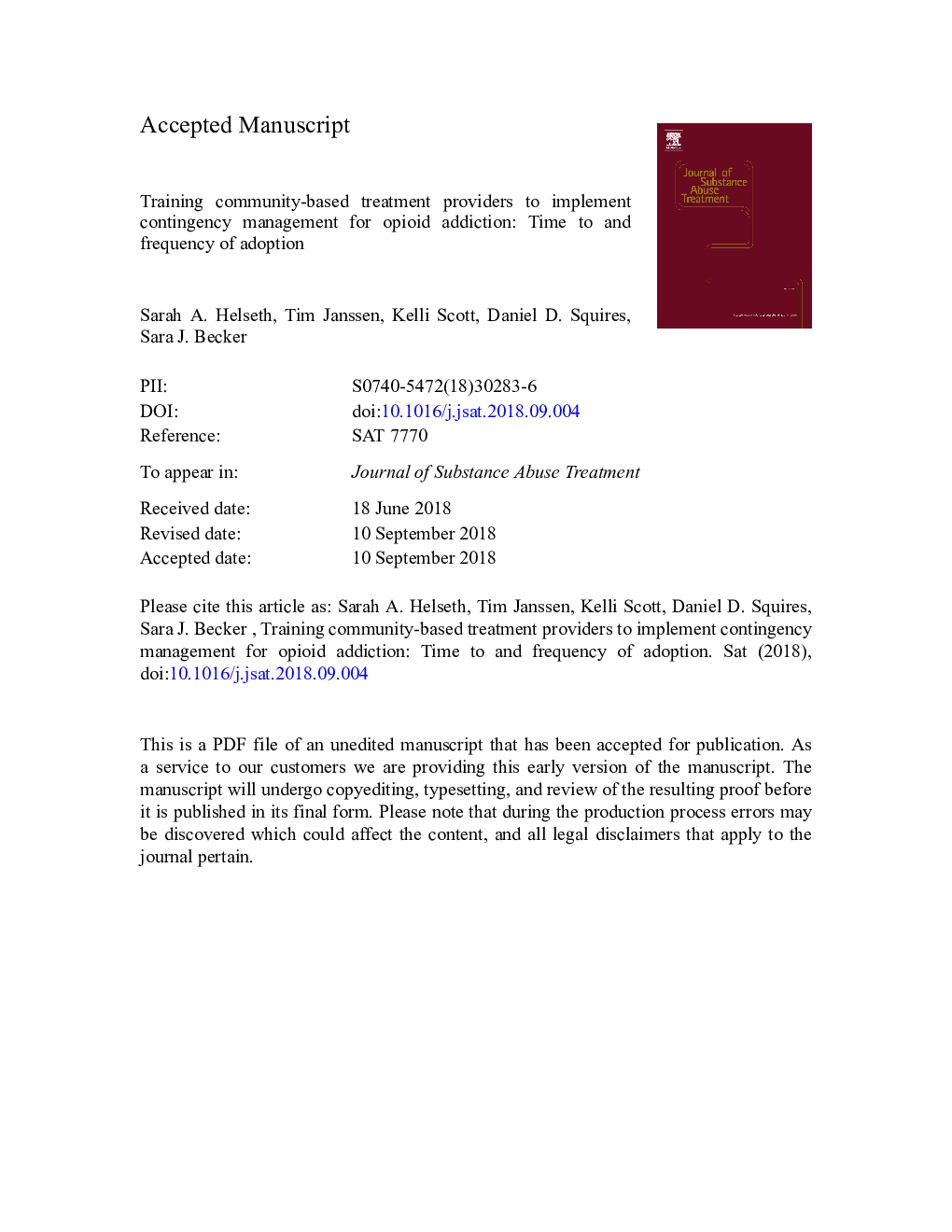| کد مقاله | کد نشریه | سال انتشار | مقاله انگلیسی | نسخه تمام متن |
|---|---|---|---|---|
| 10150805 | 1664496 | 2018 | 34 صفحه PDF | دانلود رایگان |
عنوان انگلیسی مقاله ISI
Training community-based treatment providers to implement contingency management for opioid addiction: Time to and frequency of adoption
ترجمه فارسی عنوان
آموزش ارائه دهندگان درمان مبتنی بر جامعه برای پیاده سازی موارد احتمالی برای اعتیاد به مواد مخدر: زمان و فرکانس پذیرش
دانلود مقاله + سفارش ترجمه
دانلود مقاله ISI انگلیسی
رایگان برای ایرانیان
کلمات کلیدی
موضوعات مرتبط
علوم زیستی و بیوفناوری
علم عصب شناسی
روانپزشکی بیولوژیکی
چکیده انگلیسی
Contingency management (CM) is a well-established treatment for opioid use, yet its adoption remains low in community clinics. This manuscript presents a secondary analysis of a study comparing a comprehensive implementation strategy (Science to Service Laboratory; SSL) to didactic training-as-usual (TAU) as a means of implementing CM across a multi-site opioid use disorder program. Hypotheses predicted that providers who received the SSL implementation strategy would 1) adopt CM faster and 2) deliver CM more frequently than TAU providers. In addition, we examined whether the effect of implementation strategy varied as a function of a set of theory-driven moderators, guided by the Consolidated Framework for Implementation Research: perceived intervention characteristics, perceived organizational climate, and provider characteristics (i.e., race/ethnicity, gender). Sixty providers (39 SSL, 21 TAU) across 15 clinics (7 SSL, 8 TAU) completed a comprehensive set of measures at baseline and reported biweekly on CM use for 52â¯weeks. All participants received didactic CM training; SSL clinics received 9â¯months of enhanced training, including access to an external coach, an in-house innovation champion, and a collaborative learning community. Discrete-time survival analysis found that SSL providers more quickly adopted CM; provider characteristics (i.e., race/ethnicity) emerged as the sole moderator of time to adoption. Negative binomial regression revealed that SSL providers also delivered CM more frequently than TAU providers. Frequency of CM adoption was moderated by provider (i.e., gender and race/ethnicity) and intervention characteristics (i.e., compatibility). Implications for implementation strategies for community-based training are discussed.
ناشر
Database: Elsevier - ScienceDirect (ساینس دایرکت)
Journal: Journal of Substance Abuse Treatment - Volume 95, December 2018, Pages 26-34
Journal: Journal of Substance Abuse Treatment - Volume 95, December 2018, Pages 26-34
نویسندگان
Sarah A. Helseth, Tim Janssen, Kelli Scott, Daniel D. Squires, Sara J. Becker,
